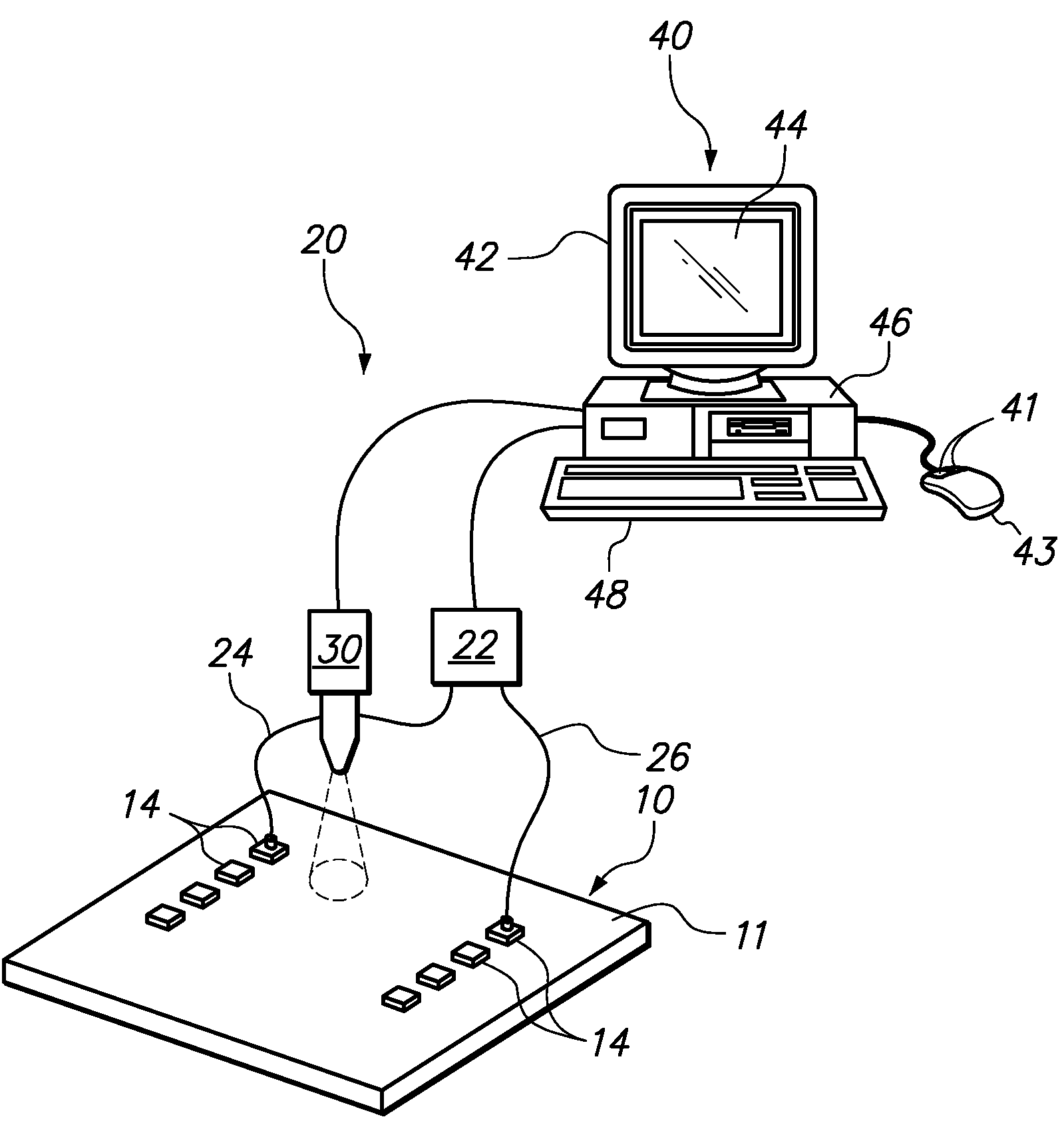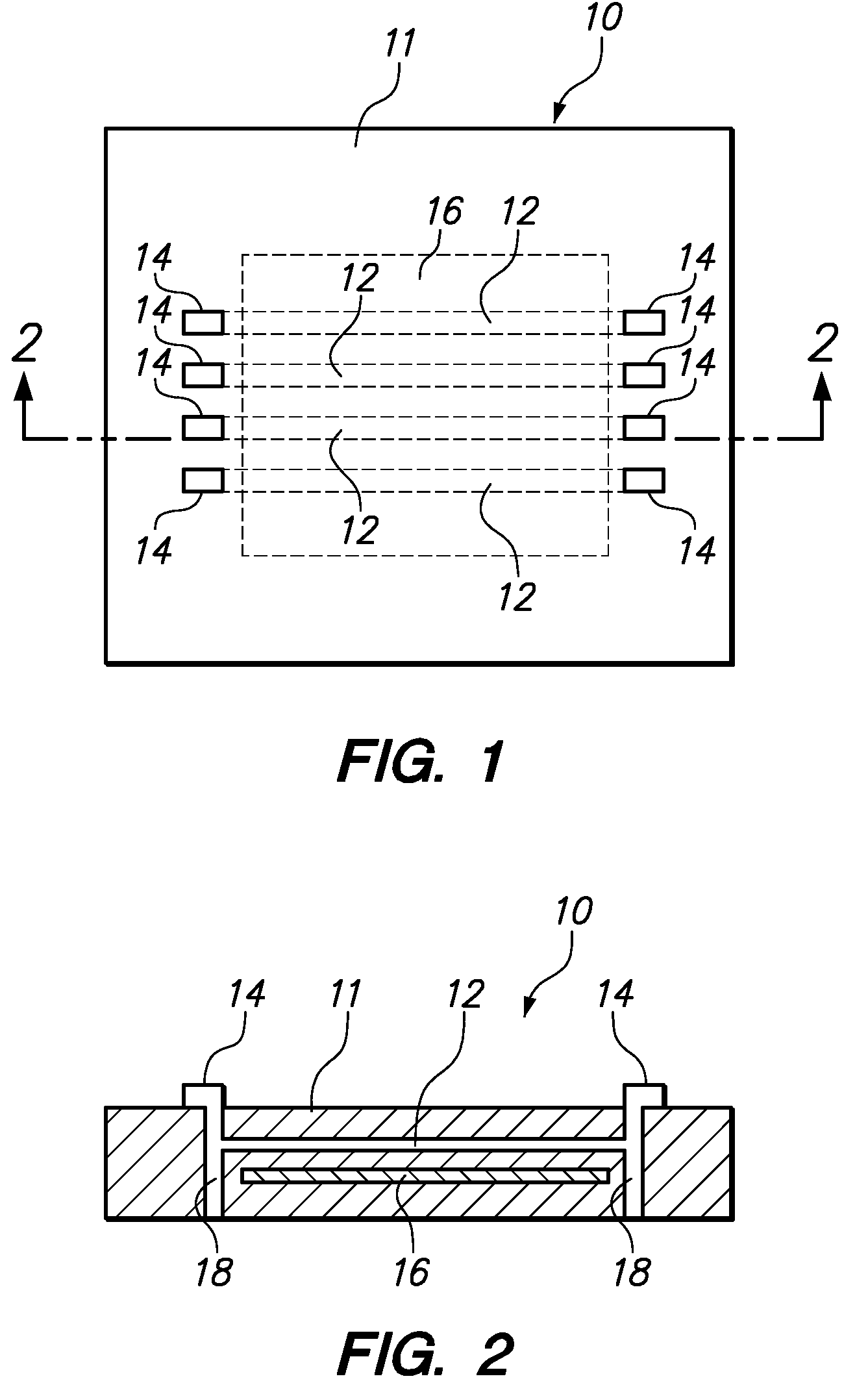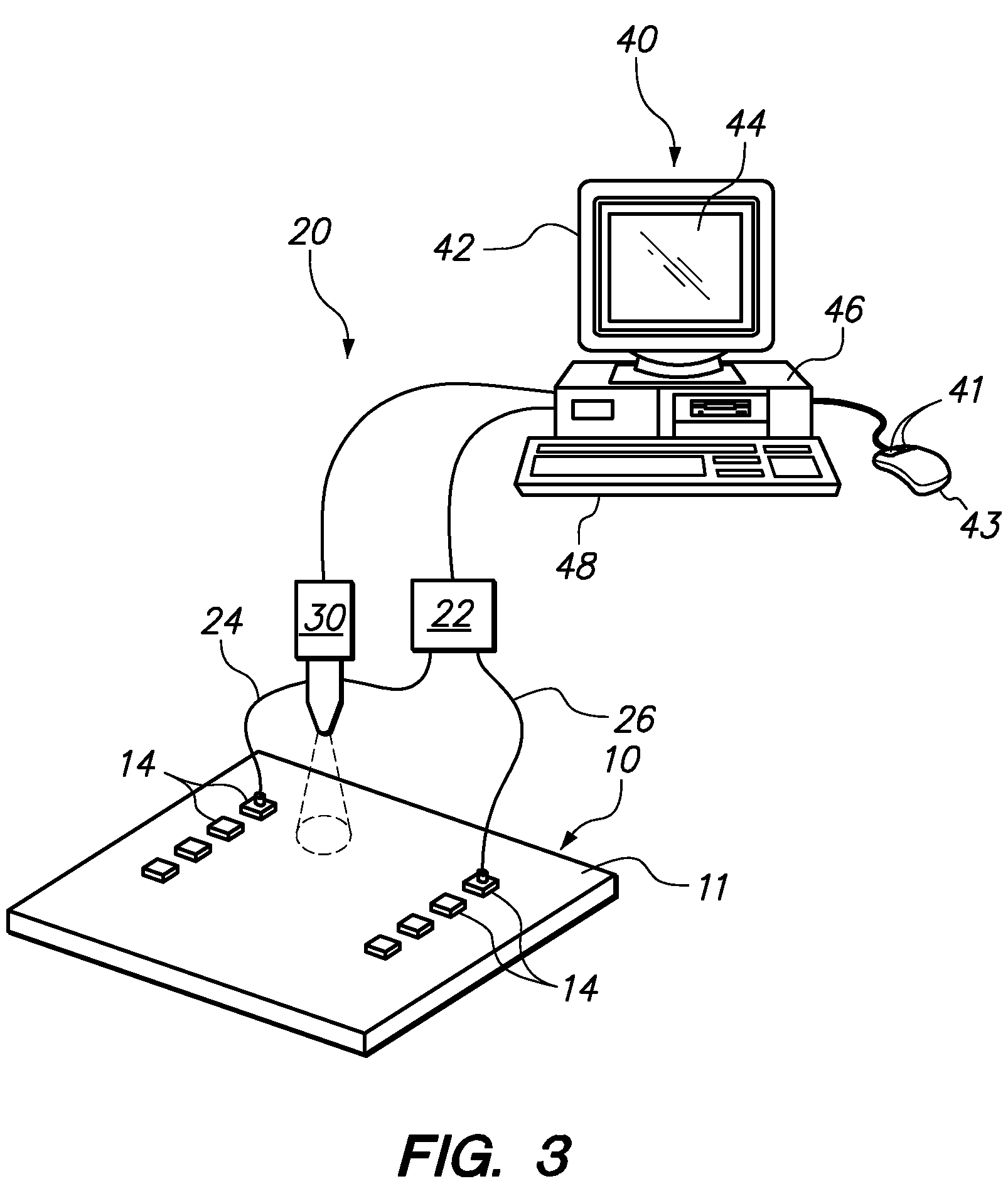Method for validating printed circuit board materials for high speed applications
a printed circuit board and high-speed technology, applied in the direction of heat measurement, optical radiation measurement, instruments, etc., can solve the problems of high level of skill, high cost, and approach taken to qualify materials for pcbs, and achieve the effect of short propagation pulse or corner-corner probing, and high level of equipmen
- Summary
- Abstract
- Description
- Claims
- Application Information
AI Technical Summary
Problems solved by technology
Method used
Image
Examples
Embodiment Construction
[0015]One embodiment of the present invention provides a method for testing a printed circuit board. The test is beneficial in determining the extent of dielectric loss associated with the material used to make the printed circuit board. When a high frequency electronic signal is communicated through a microstrip that is embedded within the printed circuit board, dielectric losses generate heat that is measurable by an increase in the temperature at the surface of printed circuit board. Comparing the measured temperature or temperature spectrum against the temperature or spectrum of an acceptable standard printed circuit board provides a quick and simple determination whether the material used in the tested printed circuit board is acceptable.
[0016]In a specific embodiment, the method applies a high frequency electronic signal to an electronically conductive microstrip embedded within the printed circuit board. The high frequency signal is preferably applied at a microwave frequency...
PUM
| Property | Measurement | Unit |
|---|---|---|
| microwave frequency | aaaaa | aaaaa |
| microwave frequency | aaaaa | aaaaa |
| frequency | aaaaa | aaaaa |
Abstract
Description
Claims
Application Information
 Login to View More
Login to View More - R&D
- Intellectual Property
- Life Sciences
- Materials
- Tech Scout
- Unparalleled Data Quality
- Higher Quality Content
- 60% Fewer Hallucinations
Browse by: Latest US Patents, China's latest patents, Technical Efficacy Thesaurus, Application Domain, Technology Topic, Popular Technical Reports.
© 2025 PatSnap. All rights reserved.Legal|Privacy policy|Modern Slavery Act Transparency Statement|Sitemap|About US| Contact US: help@patsnap.com



